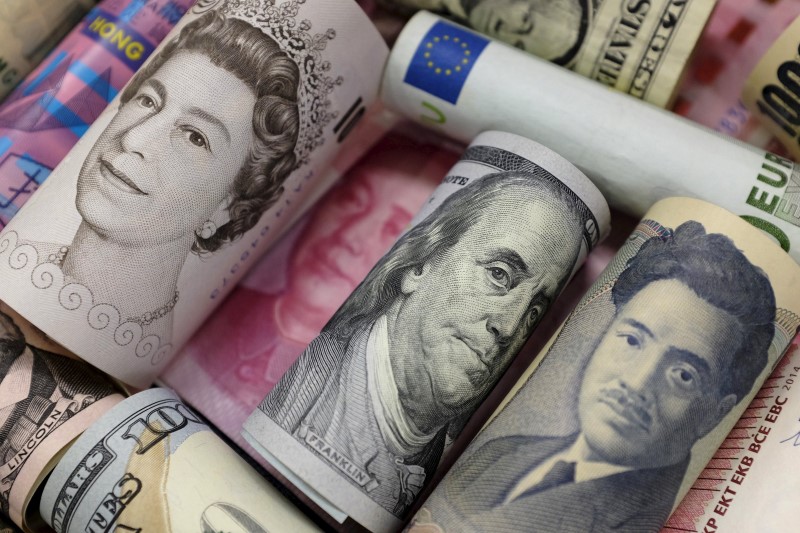By Shinichi Saoshiro and Ian Chua
TOKYO/SYDNEY (Reuters) - The yen rebounded sharply against the dollar on Monday, retracing its earlier fall on upbeat U.S. data, as a slide in equities put the "flight to safety" Japanese currency in favour.
The reaction of currencies to the G20 policymakers' meeting at the weekend was limited as the gathering produced no major surprises. Asian stocks, meanwhile, fell broadly as the G20 meeting ended without a new coordinated plan to spur global growth.
The dollar was down 0.8 percent at 113.14 yen
Indicators showed a solid rise in U.S. consumer spending and the personal consumption expenditures (PCE) price index. Fourth quarter U.S. GDP growth was also revised up to 1 percent. [ECONUS]
The dollar had sunk to a 16-month low below 111 yen earlier this month as risk aversion driven by global worries about growth - for the Chinese economy in particular - and turbulence in equities markets stoked demand for the safe-haven yen. The greenback was on its way to shedding 6 percent against the yen in February in its sharpest monthly decline since 2008.
"The biggest factor behind the dollar's recent rebound is trust in the U.S. economy being resurrected. Reviving expectations for a rate hike by the Fed is a key factor to halt the dollar's recent depreciation," said Koji Fukaya, president of FPG Securities in Tokyo.
"It is premature to declare that the yen's rally is over. But recent long positions on the yen were among some of the biggest we have seen over the past 10 years, and it appears that speculators are beginning to unwind these large positions."
Net long contracts on the yen rose to 52,734 in the week ended Feb 23 from 47,901 the week before, Commodity Futures Trading Commission data showed. That was the largest net long position since February 2012.
The dollar index dipped to 98.012 (DXY) but still within reach of a three-week high of 98.260 scaled on Friday.
The euro stood nearly unchanged at $1.0935
A communique from the Group of 20 finance ministers' and central bankers' meeting flagged a series of risks to world growth, including volatile capital flows, a sharp fall in commodity prices, and the potential "shock" of a British exit from the European Union (EU).
G20 ministers agreed to use "all policy tools – monetary, fiscal and structural – individually and collectively" to reach the group's economic goals.
"Expectations for any substantive commitments out of the G20 were sufficiently low such that we shouldn't expect any significant market response early this week," said Ray Attrill, global co-head of FX strategy at National Australia Bank.
The Australian dollar was flirting with 71 U.S. cents
G20 officials' public concerns over the impact on the global economy of a British exit or "Brexit" from the EU helped send the pound to a fresh seven-year low of $1.3841
Sterling was on track to shed 2.7 percent against the dollar in February as the prospect of Britain leaving the European Union weighed heavily.

British finance minister George Osborne said on Saturday that top G20 finance officials were unanimous that a putative British exit from the European Union would be a shock to the global economy.